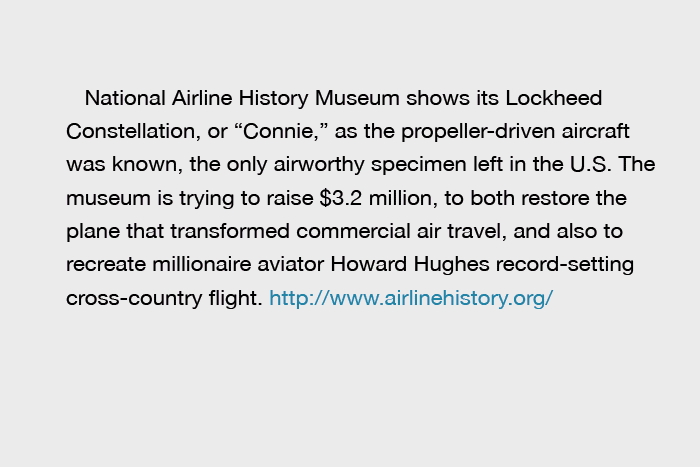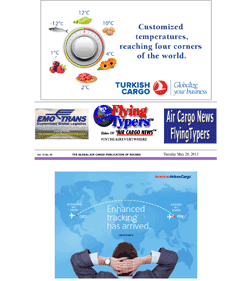
Put yourself in this picture.
“Mom & Pop”
forwarder Julian Keeling and
wife Amy put themselves into
Los Angeles-based Consolidators
International, but every once
in a while have time to find
a little pad together in paradise.
 any
small- to mid-sized freight
forwarders are not generally
portrayed as “Mom &
Pop” operations, but they
share many of the attributes
of small businesses competing
in a very tough economic climate. any
small- to mid-sized freight
forwarders are not generally
portrayed as “Mom &
Pop” operations, but they
share many of the attributes
of small businesses competing
in a very tough economic climate.

The
“Mom & Pop”
forwarder, like other small
businessmen and women, must
wear many hats.
He
must be resourceful, flexible,
willing to travel the proverbial
extra mile to please his customer.
He
or she must blend superior personal
attention to a customer with
integrated technology to provide
a seamless level of service.
He
must have experience and knowledge
of the markets he serves.
He
must be willing to forget the
nine to five workday; to spend
as many hours as needed to move
freight for a customer reliably,
safely, on time, and with no
hassles.
He
must know his customer’s
business, not in a superficial
way, but almost as well as his
own.
And
he must be alert to the changes
in his customer’s business.

Despite
all the talk in the cargo industry
that no place exists for the
small- to mid-sized forwarder,
“Mom & Pop”
forwarders are not fading into
the sunset—quite the contrary.
Their
numbers are increasing, not
declining. Small- to mid-sized
forwarders now make up about
70 percent of the cargo market,
with a record 10,000 plying
their trade from Mumbai to Marseilles.
Somewhat
surprisingly, the big multi-national’s
share of the $1 trillion international
market remains stagnant, at
about 30 percent—in spite
of claims they will dominate
the cargo market. “Mom
& Pop” forwarders
not only are increasing in number;
many are flourishing despite
a harsh global economic climate.

One
of the most interesting “Mom
& Pop” forwarders
is Consolidators International
(CII), based in Los Angeles.
The
company will reach its maturity
next year at 21 years of age.
While
still considered a “Mom
& Pop” operation by
its founder and chief executive
officer, Julian Keeling, it
is hardly a shoestring operation.
The
company has grown from a one-room
office with two employees in
1993, to a current staff of
thirty occupying the entire
original building.
From
a single facility in Los Angeles,
CII now has company owned and
operated offices at JFK, in
Atlanta, Houston, and Chicago.
“Despite
our growth, CII retains its
‘mom & pop’
spirit,” says CEO Keeling.
“We
never forget our roots as a
small, scrappy company fighting
for every scrap of business,”
continued Keeling.
“When
we opened our doors for business
on a hot summer day in Los Angeles,
I wrote a mission statement.
“It
said, in part, ‘the customer
is not part of the air freight
business—he is the air
freight business.’
“We
still live by that motto today,”
affirmed the CII head.

Consolidators
International is both a typical
freight forwarder and an atypical
one—typical in that it
provides all the services of
a traditional freight forwarder,
and atypical in that the company
will take on jobs that other
forwarders shun.
Jobs
that other forwarders find too
difficult, complicated, require
specialized knowledge and expertise,
or simply take too much time/effort
to complete are picked up by
Consolidators International.
Many
forwarders, even the largest
ones, will ask CII to handle
their shipments
A
wide assortment of freight passes
through CII’s warehouse
near LAX. Radioactive material
bound for New Zealand, helicopters
needed for Russia’s oil
industry in Siberia, a clown’s
costume for a traveling circus
playing in Samoa—these
are some of the wide variety
of shipments CII handles in
almost routine fashion.

Although
the forwarder started as an
air freight company, CII soon
expanded into other delivery
modes. Explains
Keeling, “While our growth
was consistent and solid, we
found moving cargo only by air
was too limited. Air freight’s
share of the international transport
pie was only about four percent.
That
small percentage has remained
the same for the last 25 years.
Ocean
cargo by far is the dominant
mode of global transport today,”
said Keeling.
Keeling
and his staff carefully studied
the ocean shipping industry
before dipping their toes into
the business.
“We
looked before we leaped,”
emphasized the CII head. “Results
have exceeded expectations.
“Ocean
shipping, from a zero base ten
years ago, now accounts for
40 percent of CII business.”
The
forwarder specializes in two
types of ocean shipping: NVOs,
where CII acts as a catalyst
between customer and steamship
line, and the “break bulk”
trade, which specializes in
heavyweight cargo that cannot
fit into a 20- or 40-foot container.
“Both
kinds of freight are the fastest
growing segments in ocean shipping,”
averred Keeling.
“We
have generated an increasing
share of this business year
after year.” Keeling pointed
to a successful shipment of
an entire brewery from Stockton,
CA, to Australia as an example
of CII’s expertise in
break bulk.

CII
has also been developing “niche”
businesses; geographic and commercial
sectors that big, multi-national
forwarders either believed were
not worth the effort or simply
did not grasp their potential.
“American
Samoa, a U.S. territory in the
South Pacific, is a perfect
example of a niche market that
other forwarders neglected.
“We
believed the Island had great
potential for new cargo business,”
said Keeling.
“We
went beyond just moving freight,
however. CII became a Good Samaritan,
active in Samoa’s sports
culture and educational system,
supplying goods and services
at no cost to a population that
is largely disadvantaged.
“Both
the Samoan government and the
business community responded
with enthusiasm and appreciation
of our efforts. Within a few
years, CII was generating 80
percent of all air freight into
Samoa from the U.S. and a high
percentage of its ocean cargo.”

All
businesses must evolve if they
wish to survive. CII was no
exception.
The
company formed a division, Corrigan’s
Express, with the belief that
“small is beautiful.”
Borrowing
a phrase from the high fashion
industry, Corrigan’s Express
was designated as a “boutique”
forwarder.
It
stressed exceptional personal
service to the individual shipper.
Its
staff consists of eight people
who think nothing of working
around the clock to satisfy
a customer’s cargo.
Recently,
a call came in from Australia
at 1 AM to send mining equipment
immediately. Vital equipment
had broken down in the mine,
located in Australia’s
Outback, and production had
stopped.
By
5 AM, arrangements had been
made for shipment of replacement
equipment to be delivered to
the stricken mine.
Corrigan’s
supervised the entire effort.
“We
didn’t fully realize how
important careful, personal
service is even in our hi-tech
age,” stated Keeling.
“Ronen
Donde, who heads up Corrigan’s
and is also President of CII,
has done a fantastic job in
creating a fast growing business
with a clearly defined philosophy
in just a few short years.”

Keeling
also eyed the lucrative business
of moving cargo for the entertainment
industry. It is a highly specialized
niche in the cargo business.
Keeling
believed he had the personnel
and worldwide contacts to make
another niche business successful.
CII
has struck the right note with
Backstage Cargo.
The
forwarder has moved entire film
sets to Eastern Europe and concert
equipment for venues throughout
Asia.
CII
handled the equipment for Whitney
Houston’s last worldwide
tour.
“While
Backstage Cargo is not a major
contributor to CII revenues,
it is solidly profitable. It
also provides a touch of glamour
to an essentially gritty business,”
affirmed the cargo executive.

Consolidators
International literally became
a “Mom & Pop”
forwarder when wife Amy recently
joined the company as credit
and accounts manager.
“Amy
is a great addition to our staff.
“If
you can’t trust the books
to your wife, whom can you trust?”
asks Keeling.
With
two decades of growth behind
it, and a current, smoothly
functioning operation guided
by an experienced and knowledgeable
staff, Keeling expects even
greater expansion in the years
ahead.
“You
don’t have to be a Wal-Mart
or a Target to be successful,”
concluded Keeling.
Shura
|








 any
small- to mid-sized freight
forwarders are not generally
portrayed as “Mom &
Pop” operations, but they
share many of the attributes
of small businesses competing
in a very tough economic climate.
any
small- to mid-sized freight
forwarders are not generally
portrayed as “Mom &
Pop” operations, but they
share many of the attributes
of small businesses competing
in a very tough economic climate.
 n
one of his last interviews before
he closed his stellar 40-year
career in transportation as
a major architect in building
Emirates Sky Cargo, Ram Menen
talked to FlyingTypers
about the year 2013 and his
life ahead, which, sadly, will
not include an appearance at
Munich Air Cargo Europe next
week.
n
one of his last interviews before
he closed his stellar 40-year
career in transportation as
a major architect in building
Emirates Sky Cargo, Ram Menen
talked to FlyingTypers
about the year 2013 and his
life ahead, which, sadly, will
not include an appearance at
Munich Air Cargo Europe next
week.
 ir
Cargo Germany is grounded, and
its aircraft are finding new
homes, as
FT
previously reported.
ir
Cargo Germany is grounded, and
its aircraft are finding new
homes, as
FT
previously reported.


